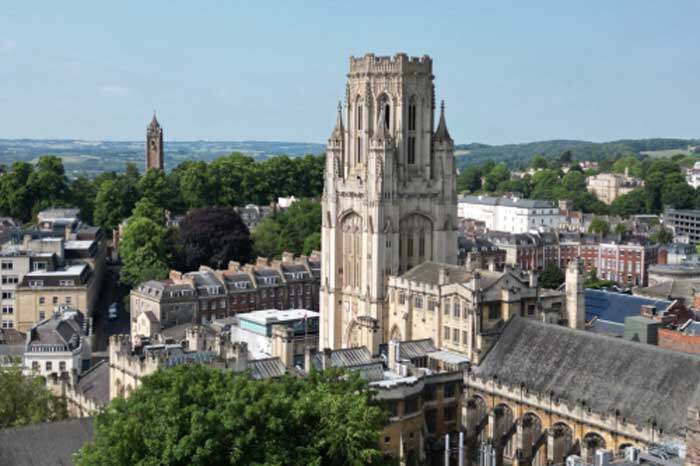The University of Bristol is the 12th most sustainable university in the world, according to the 2025 QS World Sustainability Rankings.


Released today, the influential rankings also placed Bristol as the 5th most sustainable university in the UK and the 7th in Europe.
QS judged 1,744 universities on more than 50 criteria, from their environmental research and teaching, to the gender balance of their staff and their community outreach.
Bristol came 2nd in the world in the ‘equality’ category, which looks at criteria like universities’ disability support, and how their research improves global equality when judged against the UN’s Sustainable Development Goals.
This year’s rankings included 341 more institutions than last year’s, making Bristol’s rise of five places to 12th all the more impressive.
Prof Evelyn Welch, the University’s Vice-Chancellor and President, said: “This is an exciting moment for the University, and although we still have a long way to go, we are delighted that our efforts toward creating a more sustainable future have been recognised.
“Becoming more sustainable is complicated at a University that undertakes all sorts of scientific experiments and has many Georgian buildings which, although beautiful, were not built with the environment in mind.
“So to everyone who made this possible – to our students, staff, alumni, supporters and our friends in the community – thank you all.”
The University of Bristol’s researchers are tackling some of the planet’s greatest issues – from climate change and biodiversity loss to improving health outcomes and addressing domestic violence – and are passing their knowledge onto the next generation of young minds through their teaching.
The University is home to the world-leading Cabot Institute for the Environment and it is the first University in the world to receive Green Labs certification for all of its laboratories – 990 in total.
It offers dozens of scholarships that support disadvantaged groups and hosts the Perivoli Africa Research Centre, which champions transformation in research collaborations with African partners such as University of Cape Town.
Many of its senior leaders are women and the University has achieved the Silver Athena Swan Charter accreditation in recognition of its efforts on gender equality.
The University’s community engagement includes school outreach programmes, 18,000 free consultations for Bristol locals since its Dental School moved in the city centre and its Barton Hill Micro-campus.
Its Temple Quarter Enterprise Campus will house community spaces when it opens in 2026 and has been a driver for new inclusive employment initiatives.
Prof Michele Acuto, the University’s Pro Vice-Chancellor for Global Engagement, said: “The success in these rankings is a testament to the hard work and talent of our amazing community, and we are particularly proud of the 2nd place in equality.
“The improvement underscores how seriously our work is committed to make substantial headways on the UN’s Sustainable Development Goals
“We are proud that our work in research, teaching and civic engagement tackles head on global challenges like climate change, whilst attending closely to inequality and poverty, aiming to make a difference both here in Bristol and internationally.”
Students, including Bristol Students’ Union, have played a big part in driving the University toward a more sustainable future
Axelle El-Hani studied for a Zoology BSc at the University and is now enrolled on its Science Communication for a Better Planet master’s.
She said: “I’m really happy to hear about this success.
“I know students in my department really care about nature and the environment and this shows that it’s not just limited to students: academics, support staff and the whole university care about a sustainable world.
“I’d love the university to do even more – and to be louder about what it is already doing for the environment.”
Other recent sustainability successes at the University include:
- Mapping across its cafes has reduced the carbon footprint of its homemade food by 27%
- A new climate education programme has trained dozens of facilitators to run sustainability workshops
- 50% of its vehicle fleet is now fully electric
- More solar panels have been installed, creating 500kW of solar capacity, which at its peak is enough to charge 70 electric vehicles at once
- Several funding pots help to spark new ideas, including the Cabot Institute for the Environment’s Seedcorn Fund which has increased to £30,000 a year to support bold research initiatives
Bristol hosts a Met Office Academic Partnership, which is led by Professor Dann Mitchell, Professor of Climate Science and Met Office Joint Chair in Climate Hazards at the University of Bristol. As part of that, Bristol is leading the human health component of the UK’s gold-standard climate change risk assessment.
The University of Bristol Botanical Gardens, established in 1882, blooms with more than 4,500 species of plants.
In June, Bristol entered the Times Higher Education’s ‘University Impact Rankings 2024’, coming in the top 100.






































